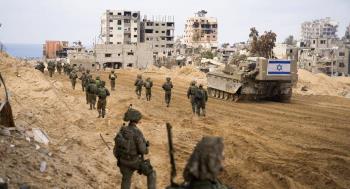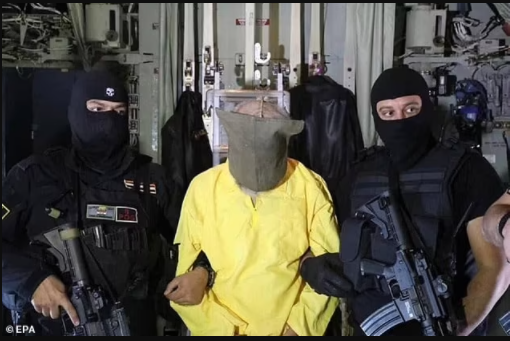Alwaght- While the main focus of the media and political observers was the Iraqi parliamentary elections, the Iraqi Prime Minister Mustafa al-Kadhimi on Monday announced one of the country’s most important intelligence achievements, the arrest of the ISIS terrorist group’s second-in-command man. Sami Jassim, the man responsible for ISIS financial structure and an aide to the slain leader of ISIS Abu Bakr al-Baghdad, was captured in cross-border operation, possibly in Turkey, said the media outlets.
The arrest of al-Baghdadi's deputy outside Iraq has been reported worldwide and is recognized as a major achievement for the country's security and intelligence institutions. What important messages and dimensions does the capture send?
Sami Jassim, with full name Sami Jassim Mohammad al-Jubouri and going by "Haji Hamid" among fellow militants, is about 60 years old and was born in the Iraqi city of Mosul. He was a senior Al-Qaeda operative before ISIS took control of large areas of Syria and Iraq. He is said to have been responsible for managing ISIS finances since 2014, with his role instrumental in the sale of oil, minerals, and antiquities stolen from museums and archeological sites in Iraq and Syria.
Jassim was arrested by the American forces in 2005, a year after joining Al-Qaeda in Iraq, and passed five years in prison. He rejoined the terrorist organization after release. He is on the US’s Rewards for Justice, a list of the most wanted figures for the American justice system. He had $5 million US bounty on his head. Jassim swore allegiance to new ISIS leader Abu Ibrahim al-Hashemi after the US claimed it killed al-Baghdadi.
The need for connection of Baghdad-Damascus security belt
In recent years, the Popular Mobilization Forces (PMF), a voluntary military force founded in opposition to ISIS in 2014, have repeatedly stressed the need to bolster security cooperation between Iraq and Syria as two countries whose security is intertwined, but Western powers, especially the US, have always tried to hamper the PMF plans to defend Iraq's national security beyond the borders. Even all the evidence and reports indicate that Washington has used the Syrian border to move terrorists into Iraq as part of a broader scheme to re-destabilize Iraq.
Almost sure that after the parliament’s foreign force expulsion bill— approved on January 5, 2020 following assassination of top anti-terror commanders General Qassem Soleimani of Iran and Abu Mahdi al-Muhandis of Iraq with a direct order from Trump — the US has no place among the Iraqi public opinion, the US mobilized their resources, from sowing sectarian division and political crisis to helping ISIS rebuild itself, to justify their military presence in Iraq. But now arrest of Jassim outside Iraq and the PMF plans to enhance security and push against terrorism prove the efficiency of the PMF’s cross-border measures.
Jassim capture a cornerstone to deepen Iraqi-Syrian ties
Arresting the second most powerful man in ISIS accentuates the significance of cooperation between Iraq and Syria as the two epicenters of emergence of the terrorist group. In the past few years, ISIS leaders have been moving between Iraq and Syria, organizing their sleeper cells in parts of the two crisis-hit nations. But Washington and some of its Arab allies have been trying to block establishment of Baghdad-Damascus cooperation at all levels.
Now, the security interconnection between Iraq and Syria is an undeniable issue that has been further highlighted by the arrest of Jassim. Syria and Iraq, as the two main centers of activity of the most horrible terrorist group in history, certainly need extensive cooperation to maintain security and stability in the border areas as well as inside their cities. Although Baghdad and Washington are aware of this and want to cooperate with each other, supporters of ISIS and other terrorist organizations, led by the US, have always put the skids under Iraqi-Syrian marriage of anti-terror efforts.
A clear sign to this reality is the late August security summit. Despite Baghdad’s interest to see Syria joining in, under pressure from President Emmanuel of France who represented the Western bloc, al-Kadhimi administration did not send invitation to Damascus while Syria is healing from the wounds of anti-terror war regaining its Arab world position. Even after the summit, al-Kasumi reportedly informed the Syrian government of the meeting’s outcomes in a show of interest to boost partnership in various areas.
In general, capture of ISIS’s second man in power can make a ground for security and intelligence cooperation between Syria and Iraq, something helping shore up relations at all levels. With economy and security crucial to both, strengthened relations are not only undeniable reality but also necessity for the two nations to restore their regional role and position.



























